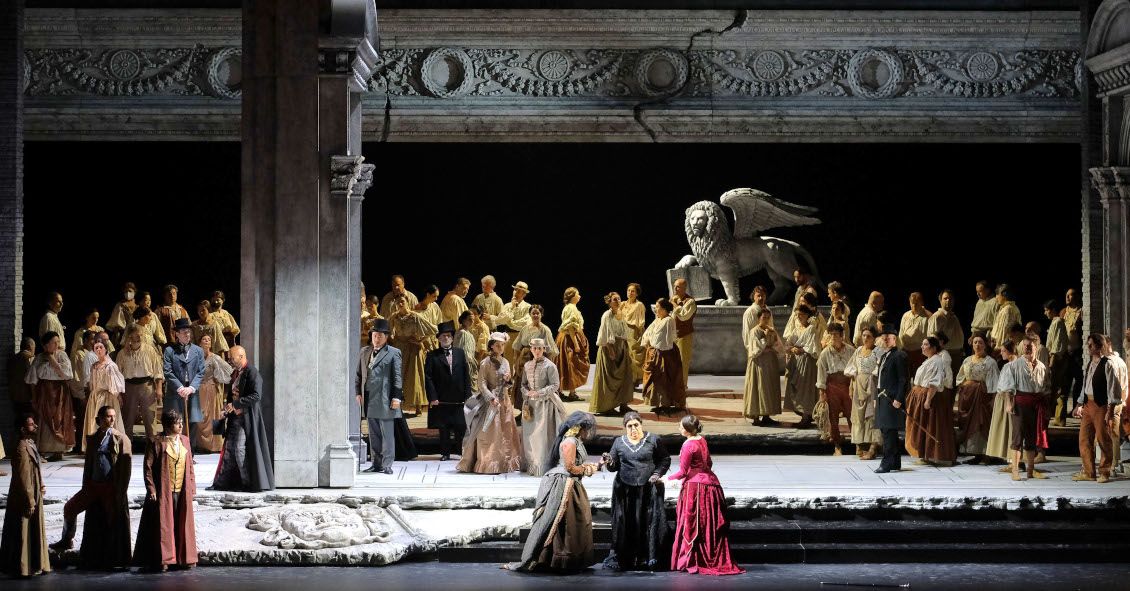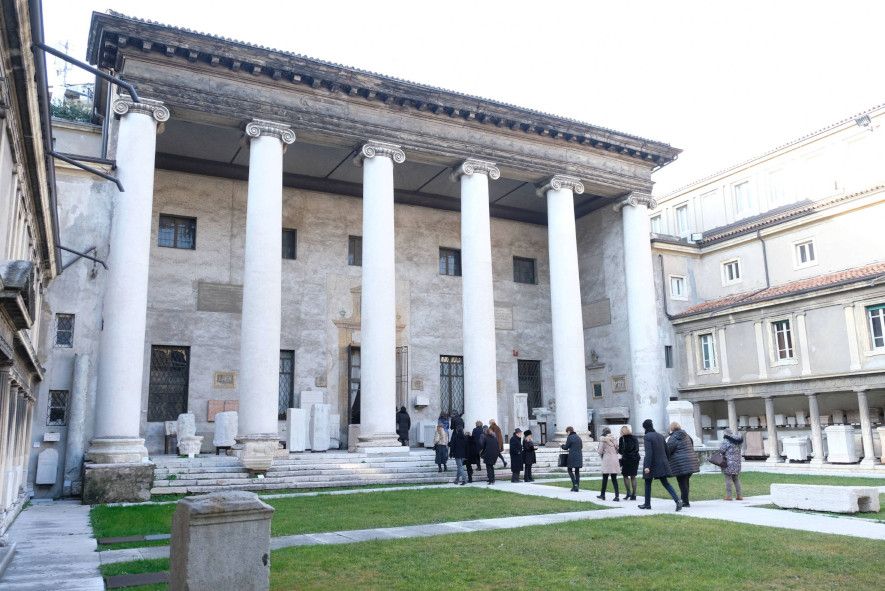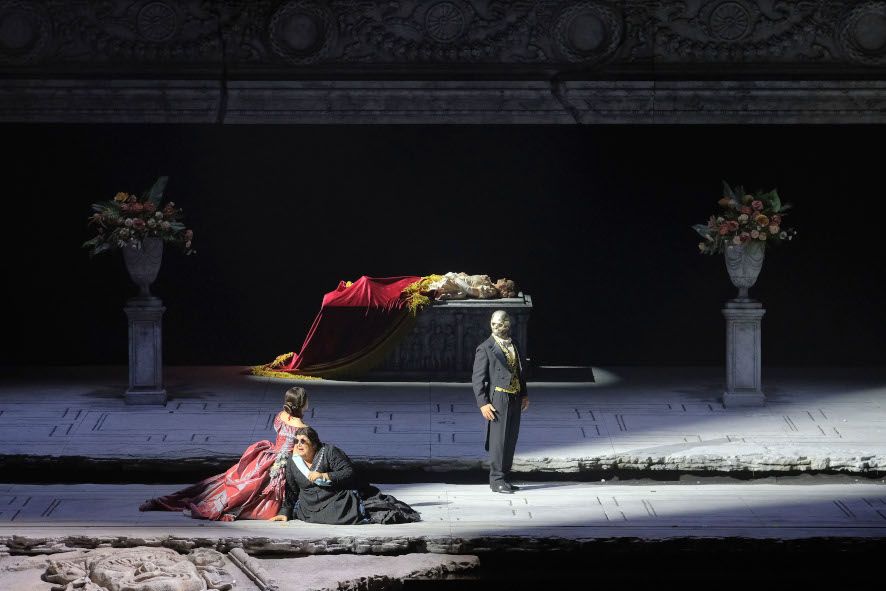Verona, Teatro Filarmonico, LA GIOCONDA - Amilcare Ponchielli, IOCO Kritik, 04.11.2022


LA GIOCONDA - Amilcare Ponchielli
Orchestra and Choir of Fondazione Arena di Verona / Francesco Ommassini
von Janet Banks (IOCO UK correspondent)
It was a warm and sunny afternoon in Verona on October 23, 2022; the fabulous Arena di Verona-season was long over and opera performances moved indoors to the sumptuous Teatro Filarmonico for this new production of Ponchielli’s four-act showstopper of La Gioconda.
It's hard to think of a worse misnomer than La Gioconda, "the cheerful woman", for the central character in Almicare Ponchielli's opera: betrayed by her lover Enzo, beset by plots on her mother’s life and lusted after by a villainous spy of the Inquisition, her is hardly a bed of roses. Moreover as a member of the lower social order, a street singer, La Gioconda is never given the dignity of a birth name, but is known only by her nickname, as is her mother La Cieca (the blind woman).
La Gioconda - Teatro Filarmonico di Verona youtube Trailer Sery Operaclassica [ Mit erweitertem Datenschutz eingebettet ]
This new production at the Teatro Filarmonico, Verona was overwhelmingly traditional, with no surprises. Carla Galleri’s costumes set it firmly in the time it was written (1876) - dresses with bustles, long, swirling greatcoats, the colours mostly monochrome with flashes of red and blue – rather than in the 18th century, when the story is set.
Filippo Tomi's attractive set was suitably architectural, although not specifically Venetian. A huge horizontal crack across the back stone wall suggested the impending disaster in the main character’s lives as well as the underlying threat of the Inquisition.
A Roman pillar, see foto below, was often very effectively used to divide the stage in half, for instance in Act I when La Cieca sat alone with her rosary on the left while silently witnessing the action on the right. Further internal walls descended in Act 3, giving a feeling of fate closing in on the characters. Actual flaming torches and a huge blaze when Enzo sets fire to his ship felt a rather risky from a health and safety point of view but certainly packed a punch.

Without a doubt it is Ponchielli’s sublime music, especially his writing for orchestra, that is the highlight of this work, and from the opening cello quartet in the overture, Francesco Ommassini drew the best from his players. Of course everyone was waiting for the celebrated Dance of the Hours, whose delicate ebb and flow they captured beautifully as three white-skirted ballerinas moved with alternately sinuous and more blocky, modern moves in Valerio Longo’s choreography.
Monica Conesa as La Gioconda very much looked the part, and really came into her own in Act 4 with a splendid ‘Suicido!’ aria, strong in all its ranges and effectively portraying her inner torment.
Mezzo-soprano Agnieszka Rehlis, her rival in love, was a fine Laura, but of the female singers it was Agostina Smimmero as La Cieca, dressed in black and with circular dark glasses to emphasise her blindness, who most captivated the audience with her rich, fruity voice and powerful stage presence – in Act I her ‘benedizione’ was still sounding when spontaneous applause broke out.

The three male singers complete the six-voice (soprano, mezzo, contralto, tenor, baritone, bass) soloist set. Tenor Angelo Villari had no problems with the top Bb at climax of ‘Cielo e mar’ in Act 2, and played a convincingly tender lover to Laura. Agostina Smimmero acting as the spy Barnaba, as he charmed the chorus and persuaded them he was one of them, was exceptionally well done, and his ‘Parla!’ as he kissed the huge lion’s mouth on the floor of the stage, into which he had posted his denunciation of Enzo and Laura, really thrilling. Simon Lin’s powerful and full-toned bass in the role of Alvise, Laura’s husband, made up for a rather wooden stage presence.
The large and well-drilled chorus, including 16 fresh-voiced children, broke up the intensity of the action with its rumbustious ensembles, blissfully unaware of the central chracters’ problems.
An announcement before the performance asking audience members to turn their mobile phones off would have been useful – there were a couple of instances of prolonged ringing.
ARENA DI VERONA - Saison 2023 - performances, dates - click, link HERE!
---| IOCO Kritik Teatro Filarmonico Verona |---





